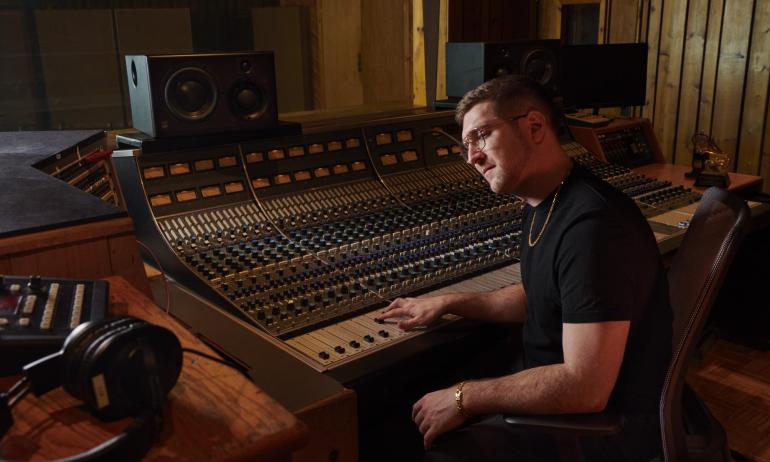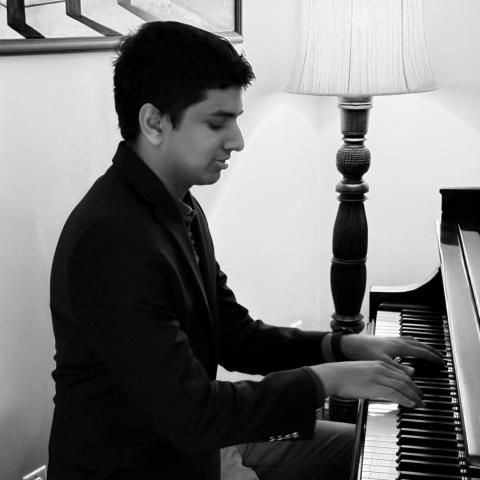Five Dollars and the Truth: Mary Gauthier on Songwriting

Mary Gauthier at the Red Room at Cafe 939
Image by Adam Ridhwan
Metaphors abound in songwriting, though they don’t always venture into the realm of food. But singer-songwriter Mary Gauthier, a former restaurateur, invoked her Cajun culinary heritage in a recent master class with Berklee students. “I was searching for purpose in my life,” Gauthier told an audience of students and faculty members in the Red Room at Cafe 939. “And the restaurant I had was fine. But jambalaya only goes so far in the purpose department.”
Gauthier attended culinary school in Cambridge and ran her restaurant, Dixie Kitchen, in Back Bay for 11 years. On the restaurant’s opening night, she was arrested for drunk driving—it wasn’t her first time, but it provided an important wake-up call.
“I’d struggled with addiction for years,” Gauthier told her audience, recalling her first visit to a rehab facility at age 15. But the arrest in Dorchester on the night her restaurant opened made her realize that something had to change. After she attended an open mic at Club Passim in Cambridge (thanks to a friend who was a Berklee student at the time), Gauthier decided to try her hand at writing songs.
“I went back every week and listened,” she said. “And finally, six or eight months later, I went back and plunked down my five dollars and got up to sing. It was terrible! I forgot the music, I forgot the lyrics, I was shaking. But I was hooked. I kept coming back, and I got better.”
Eventually, Gauthier sold her restaurant and moved to Nashville, where she has lived since 2001, writing and producing songs. Ten albums and nearly two decades later, she calls herself a “troubadour,” saying, “I don’t write hits. I just do what I do, and I do it right. I think you need honesty and truth and vulnerability in the work, to really connect with your listeners.”
Gauthier played three songs, including “I Drink,” one of her first and longest-standing hits, which was featured on Bob Dylan’s Theme Time Radio Hour. “This song is my alternate reality,” she explained, noting how it imagines the life she might have had if she hadn’t stopped drinking. Gauthier admitted that recovery is an ongoing struggle. “I’m not there—there is no ‘there’,” she said. “I live one day at a time.” Songwriting, she said, is a healthy way to deal with some of the fear and pain she still has to combat.

Mary Gauthier with Jaimee Harris perform “War after the War” at the Red Room at Cafe 939.
Recently, Gauthier has worked with the nonprofit SongwritingWith:Soldiers, spending time with veterans and their spouses, and hearing their stories. The last song she played, “War after the War,” was inspired by a retreat session with several military wives, who shared their struggles after their spouses came home from combat. It appears on her 2018 Grammy-nominated album, Rifles & Rosary Beads, which features 11 tracks cowritten with veterans and military spouses.
“I believe a song can change the world,” Gauthier told her audience. “I’m not up here telling you how you should feel in my music. But a song can change a heart, and then a heart can change a mind.” That’s how it happens, she said, gesturing to her T-shirt, which bore a guitar image and a Woody Guthrie quote: This Machine Kills Fascists. “Woody knew,” she said. “Woody knew.”




